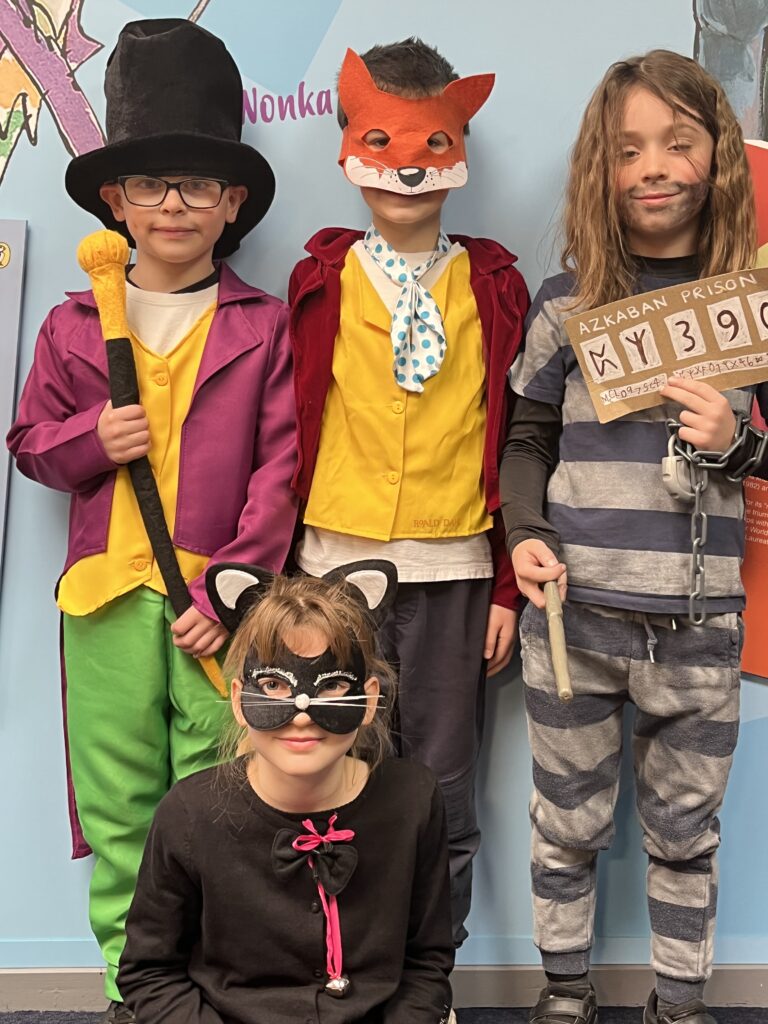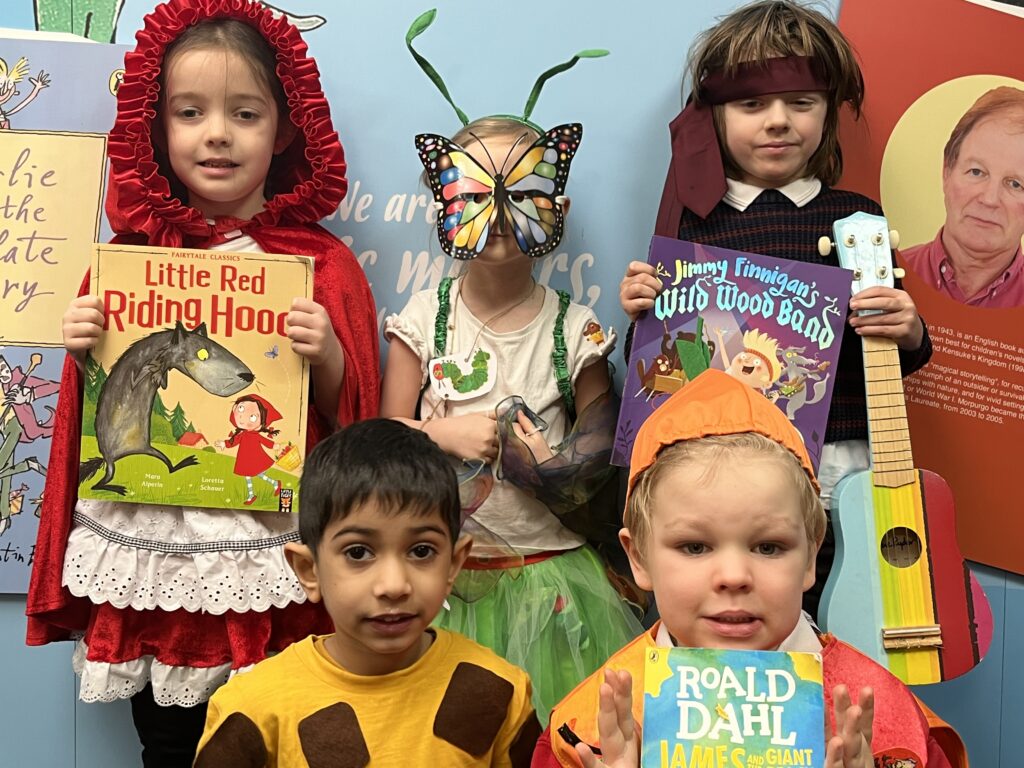Our curriculum leaders for English are Mrs Metcalfe, Mrs. Hackett and Mrs Spencer.
From Spring Term 2024, we are teaching using the CUSP curriculum in Reading, Writing and Spelling. We follow Sounds Write Phonics and Pen Pals Handwriting scheme.
We aim for pupils to develop skills in speaking, listening, reading, and writing that will enable them to express themselves creatively and imaginatively and to communicate with others effectively and independently. We want pupils to become enthusiastic and analytical readers of a rich variety of stories, poetry and drama, non-fiction, and media texts. Pupils are given opportunities to develop their use, knowledge, and understanding of spoken and written English within a broad and balanced curriculum, with opportunities to consolidate and reinforce taught literacy skills from the 2014 National Curriculum.
• explicitly taught and planned sessions following the guidance and objectives of the CUSP Curriculum and linked to end-of-year expectations which are shared with the children; these will typically be 45-60 minutes long.
• speaking and listening activities, e.g. role-play, paired talk, drama, and hot seating to prepare pupils for the writing process
• explicit daily teaching of phonics in Key Stage 1 using the Sounds Write Scheme and the CUSP spelling program in Key Stage 2 (once phonic knowledge is secure)
• developing a sound awareness of grammar and punctuation through analysing quality texts
• work using a range of genres which enables pupils to develop comprehension and composition skills and the understanding of the importance of presentation for impact.
• letter formation, handwriting, and presentation skills taught and modelled, using the PenPals Handwriting Scheme.
• immersion in a print-rich environment, through the use of book-based units of work in the CUSP curriculum that promote a reading culture and develop children’s oral and written communication.
All of our pupils in Key Stage 1 and Key Stage 2 are taught reading using the CUSP programme. In EYFS, our pupils use CUSP Structured Story Time using the Early Foundations Literature Spine.
CUSP Reading:


Using the CUSP Curriculum for writing, we aim to develop the children’s ability to produce well-structured, detailed writing in which the meaning is made clear and which engages the interest of the reader. Attention is paid throughout the school to the formal structures of English, grammatical detail, punctuation, and spelling. Our approach to teaching writing covers the ‘transcription’ and ‘composition’ requirements of The National Curriculum (2014). Children have the opportunity to explore high-quality texts in-depth, enhancing reading comprehension and providing meaningful contexts and purposes for writing.
We use the Penpals Handwriting Scheme in school to help children develop fluent, clear, and legible joined-up writing (see Handwriting and Presentation Policy for further details).
We aim for pupils to be able to:
• write in a grammatically accurate way
• develop an increasingly wide vocabulary suited to the purpose and genre
• incorporate ideas and skills of other authors into their writing
• collaborate with others during the writing process
• edit and improve against success criteria, making significant revisions where appropriate
• work collaboratively with other children to discuss the editing of written work
• use ICT as a tool for writing
• use spelling, punctuation, and syntax accurately.
At Queniborough CE Primary School, we believe that teaching explicit phonics lessons from the start of EYFS is crucial in giving our pupils a solid base to build on as they progress through school. We have a structured approach to the delivery of phonics using a the Sounds Write programme. Children in EYFS and Key Stage 1 have a daily Sounds Write session.
The programme begins by teaching an ‘Initial Code’. During this phase, the children learn that:
Once the children are confident with applying this understanding in their reading and spelling, they move onto the ‘Extended Code’ when they move into Year 1. During this phase, the children learn:
Our aim is to give the children the skills to read fluently, which in turn leads to the skill of comprehension and reading enjoyment. We are passionate in our belief that reading opens the door for children to explore a whole new world beyond the classroom. We want our children to be passionate readers and confident communicators.
Spelling is taught in Key Stage 1 and Key Stage 2 using the CUSP Spelling curriculum.


Children in Year 1 participate in a statutory national phonics screening check. Those identified as needing additional support will continue to be taught phonics until they are secure with this. Children’s phonological awareness and spelling strategies are regularly assessed and this informs teaching.
In KS2, children are given greater responsibility for developing their own spelling in addition to the CUSP spelling scheme. Children in KS2 focus on learning key spelling patterns and words. Classes have discrete spelling lessons and there may be homework based on these patterns. Throughout the school, children also work on learning spelling which they personally find tricky. Children are taught to employ their knowledge of sounds, and patterns and to look for links in words to find effective methods for their own use and we understand that no one method will work for all. Children are encouraged to use appropriate strategies that have been introduced to help spell unfamiliar words: independent use of dictionaries and thesauruses is encouraged.
Grammar and punctuation are taught explicitly as well as forming part of each lesson and identified in marking with children in KS2 completing regular spelling, punctuation, and grammar tests in preparation for the end of KS2 assessments.
The National Curriculum for English reflects the importance of spoken language in pupils’ development across the whole curriculum – cognitively, socially, and linguistically. Spoken language underpins the development of reading and writing. The quality and variety of language that pupils hear and speak are vital for developing their vocabulary and grammar and their understanding of reading and writing. Teachers should therefore ensure the continual development of pupils’ confidence and competence in spoken language and listening skills.
Pupils will develop a capacity to explain their understanding of books and other reading and to prepare their ideas before they write. They must be assisted in making their thinking clear to themselves as well as to others and teachers should ensure that pupils build secure foundations by using discussion to probe and remedy their misconceptions. Pupils will also be taught to understand and use the conventions for discussion and debate.
All pupils will be enabled to participate in and gain knowledge, skills, and understanding associated with the artistic practice of drama. Pupils will be able to adopt, create and sustain a range of roles, responding appropriately to others in the role.
Pupil have opportunities to improvise, devise and script drama for one another and a range of audiences, as well as to rehearse, refine, share and respond thoughtfully to drama and theatre performances. Statutory requirements which underpin all aspects of spoken language across the six years of primary education form part of the national curriculum. These are reflected and contextualised within the reading and writing domains that follow.


